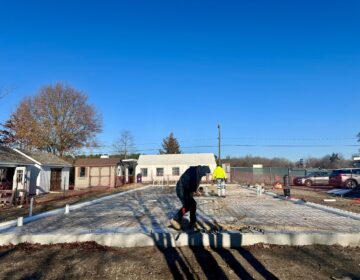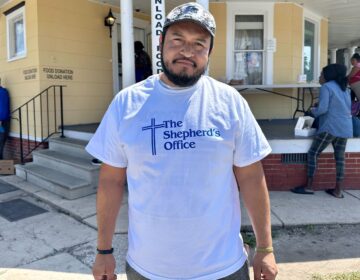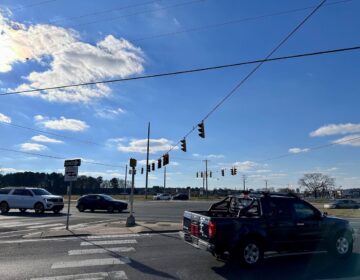Hemp growers fight federal limits, weather, thieves for a stake in a projected CBD boom
Not “the devil’s lettuce”: A group of farmers in Delaware invest in pricey seed and take their chances on a crop with no more than 0.3% THC.
Listen 4:38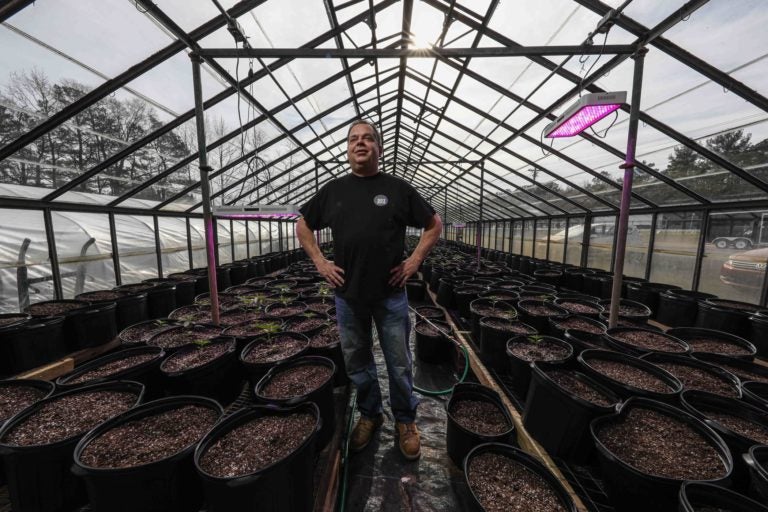
Mike Spray, a hemp grower, poses for a photo in a greenhouse Monday, Feb. 03, 2020, at 302 Hemp Co, in Georgetown, Del. It’s been a year since the hemp growing pilot program in Delaware started and the USDA has made regulations for hemp growing. (Saquan Stimpson for WHYY)
Mike Spray says neuropathy in his feet used to cause so much pain, he routinely had sleepless nights. When he discovered CBD oil two years ago, he said, it was “life-changing.”
“I was sleeping anywhere from an hour and a half a day to four hours. The four hours was the, ‘Woohoo, that’s as good as it’s going to get,’” said Spray, who lives in Georgetown, Del. “I get six hours now, every day. I still get some pain. But I don’t want to be one of those people on pharmaceutical drugs, because that’s a never-ending game.”
Spray said he wants others to experience the same healing benefits, so he’s embarking on a CBD business venture. He was involved in a research-based pilot program across Delaware last year that allowed him to grow hemp, the plant from which CBD oil is extracted.
Spray is now applying for a grower’s license in the state’s first commercial hemp growing program, which will allow him and others to take advantage of the economic benefits of cultivating this variety of cannabis for the first time in decades.
In January, Delaware became the second East Coast state to receive approval from the U.S. Department of Agriculture to embark on this endeavor.
Spray and his wife, brother-in-law and daughter saved a couple hundred thousand dollars from their house-flipping businesses to buy an old farmstand on 5 acres in rural Georgetown and transform it into a hemp farm and shop. They want to add a farm-to-table business on the property as well.
He plans to send the hemp he grows to a processor, who will transform it into CBD oil that will be sold at the shop, along with other CBD products like lotions and soaps.
Spray and others entering the program — applications can be filed with the state through May — are hopeful there will be a boom in the CBD business. A study last year projected the collective market for CBD sales in the United States would exceed $20 billion by 2024.
But to reap those benefits, growers say, they must first fight federal regulations that set the limit for THC in hemp plants at 0.3%.
THC is a naturally occurring compound found in plants in the cannabis genus, such as hemp and, most notably, marijuana. Delaware has joined other states in petitioning the USDA to increase that limit to 1%, arguing it’s more achievable for growers and will improve CBD products. A ruling is not expected until the fall.
“Allow people that understand how the plant works to create the things that are going to get [consumers] off the opioids. What we have now is high THC, no THC, and nothing in between,” Spray said. “This isn’t the devil’s lettuce.”
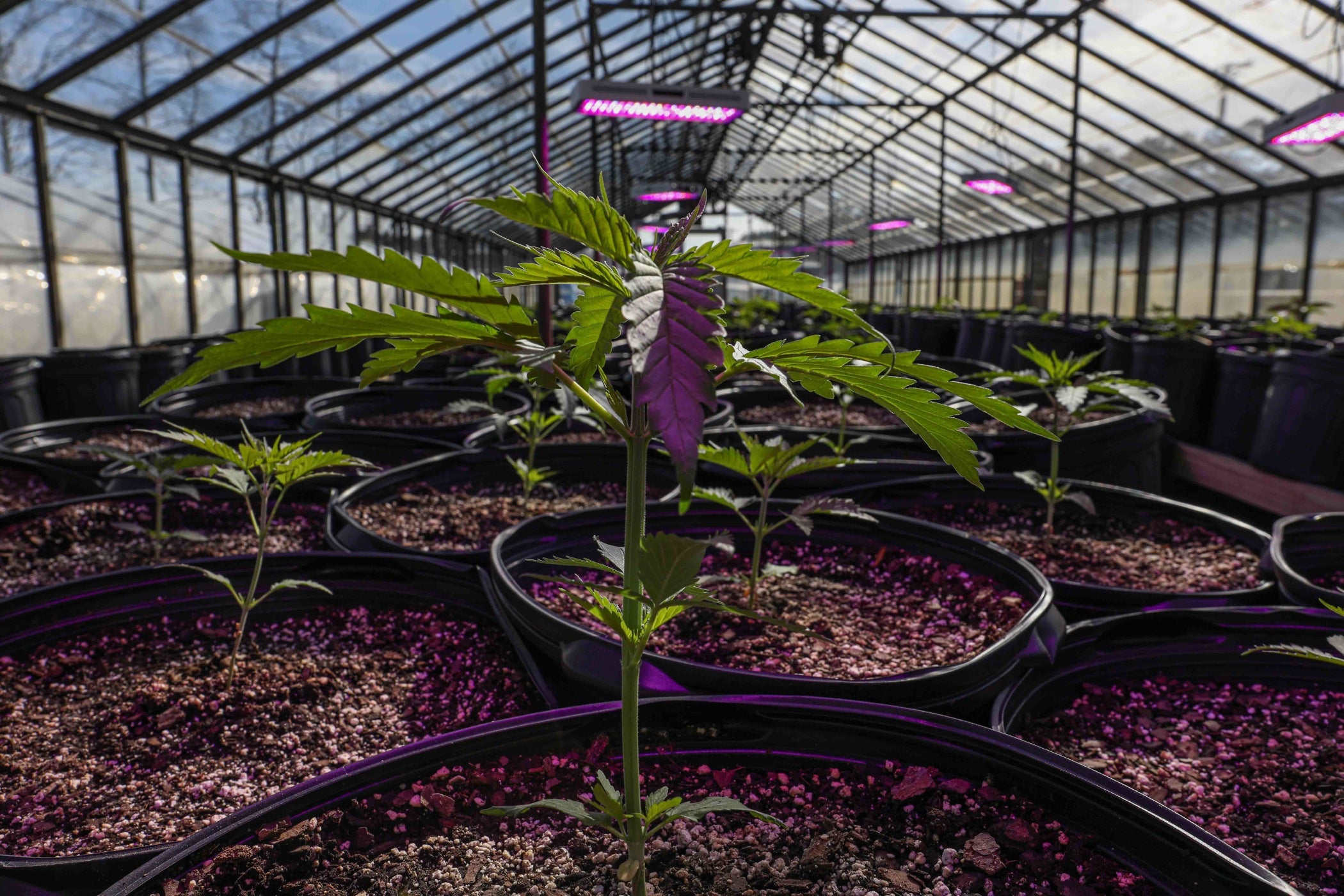
Cultivating a challenging crop
Delaware’s Department of Agriculture conducted its pilot program last year based on the 2014 federal Farm Bill allowing research-affiliated hemp growing. Delaware State University compiled some preliminary data and will use it to write a grant to submit to the USDA and other funding agencies to increase the scope of the study.
Twenty-six growers registered in last year’s pilot, and 18 of them grew crops. They were limited to 10 acres or less, to keep the focus on research and prevent business operations.
“It’s a new crop to all of us, and we’re all trying to learn how to grow it the best way possible, and that 2019 program allowed for that experimentation,” said Jessica Inhof of the state’s Agriculture Department.
Inhof expects at least half the pilot growers to apply for the state’s new commercial license.
“I hope it will be an additional income stream for our growers in Delaware, that we would have processors located in Delaware accepting Delaware grown material,” she said. “I am aware of outside companies coming from across the country and trying to contract with growers in Delaware, so growers aren’t limited to selling on the Delmarva peninsula. They have the ability to contract with outside processors and sell their harvested crops.”
Until World War II, hemp was a major crop in the United States. But in the 1970s, the federal government classified it as illicit because of its relationship to marijuana. In 2018, Delaware passed legislation allowing industrial hemp to be grown in the state. The 2018 Farm Bill signed by President Donald Trump removed hemp from the federal illicit drug list.
Unlike its cousin marijuana — which contains much higher percentages of THC and is listed by the federal Drug Enforcement Agency as a controlled substance in the same category as heroin and LSD — hemp does not cause a high. CBD products derived from hemp can reduce pain, seizures and stress, and relieve other health issues.
But Inhof and her growers are concerned that the federal THC limit will put a damper on the potential financial benefits of growing hemp. The regulations could cause growers to lose thousands of dollars.
If hemp crops sampled by Inhof’s department and tested by a third-party lab show THC levels above 0.3%, the grower is forced to destroy the crop. Seed alone is a dollar a piece, so destroying a crop can be financially devastating.
Though Spray is excited about a new business venture, he remains on edge.
“I’m scared to death,” he said. “There goes your couple hundred thousand dollars, they’re gone, because most states don’t have a remediation process if you come in hot.”
If a grower’s crops exceed the permissible THC level three times in a five-year window, the hemp producer will not be allowed to grow the plant for five years.
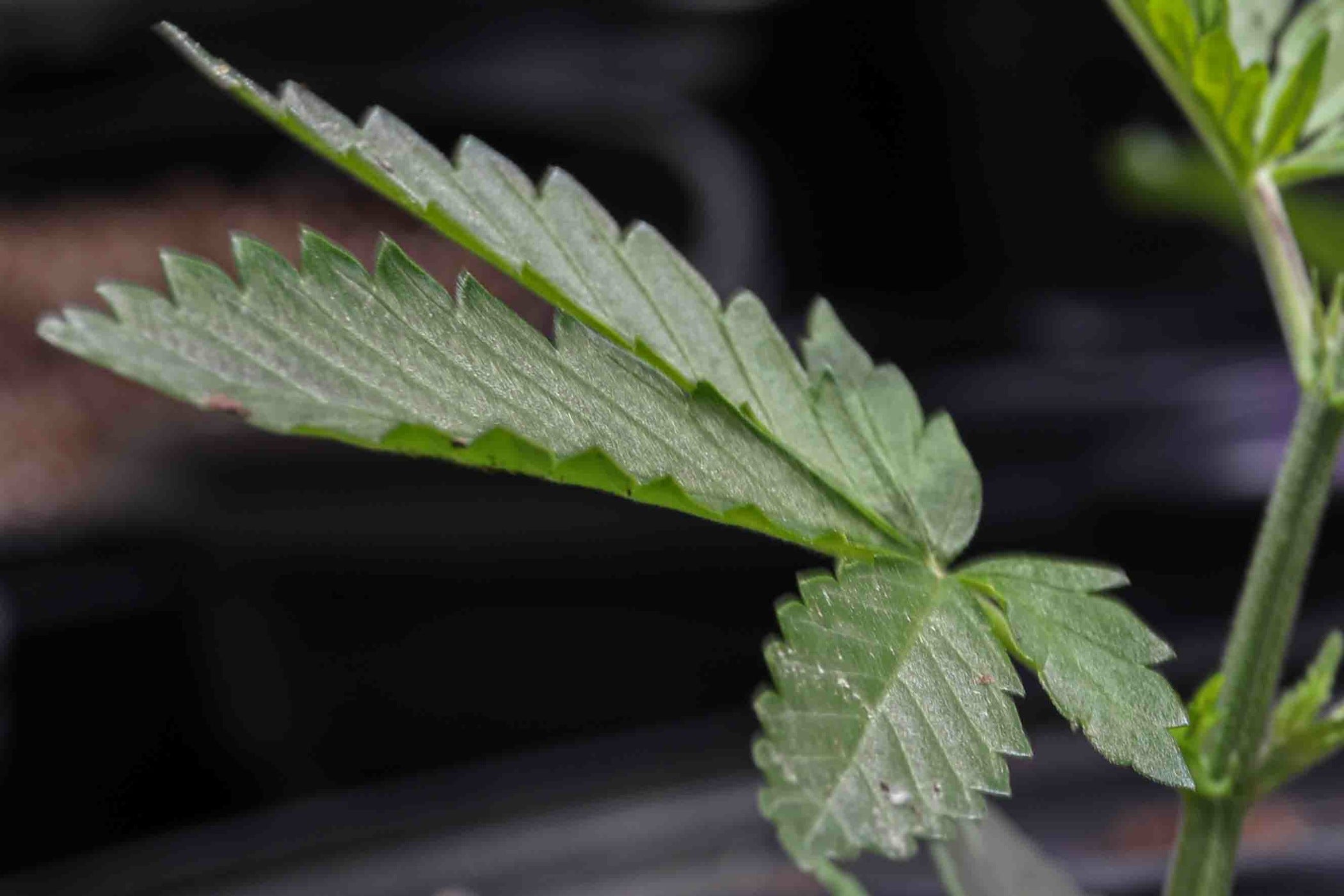
Spray said letting a hemp crop mature allows for increased cannabinoids, the healing agent in the plant. But often, he said, THC levels increase in the process.
“Eliminating certain things because the government says it has to be eliminated, we’re not getting the total package,” he said.
Delaware State University researchers said there are hemp varieties with 0% THC levels that also maintain high CBD content. It may be another couple years before they become more popular and quantities of those varieties become available in the market to certified seed channels.
For now, how much THC hemp contains is not something growers can readily control. Weather conditions like drought and high temperatures can stress the hemp plant, and stress triggers THC increases.
Greenhouses help somewhat, but they’re more expensive than outdoor farming because of the equipment needed. The lights alone are several hundred thousand dollars — and that’s before paying the electric bill.
“The farmer has a lot of control of what he does, but he does not have control over pollination, he doesn’t have control of the weather,” said Yolonda Messick, a local grower. “There’s a lot of things out of his control, and I’m really concerned the farmers might get punished for that.”
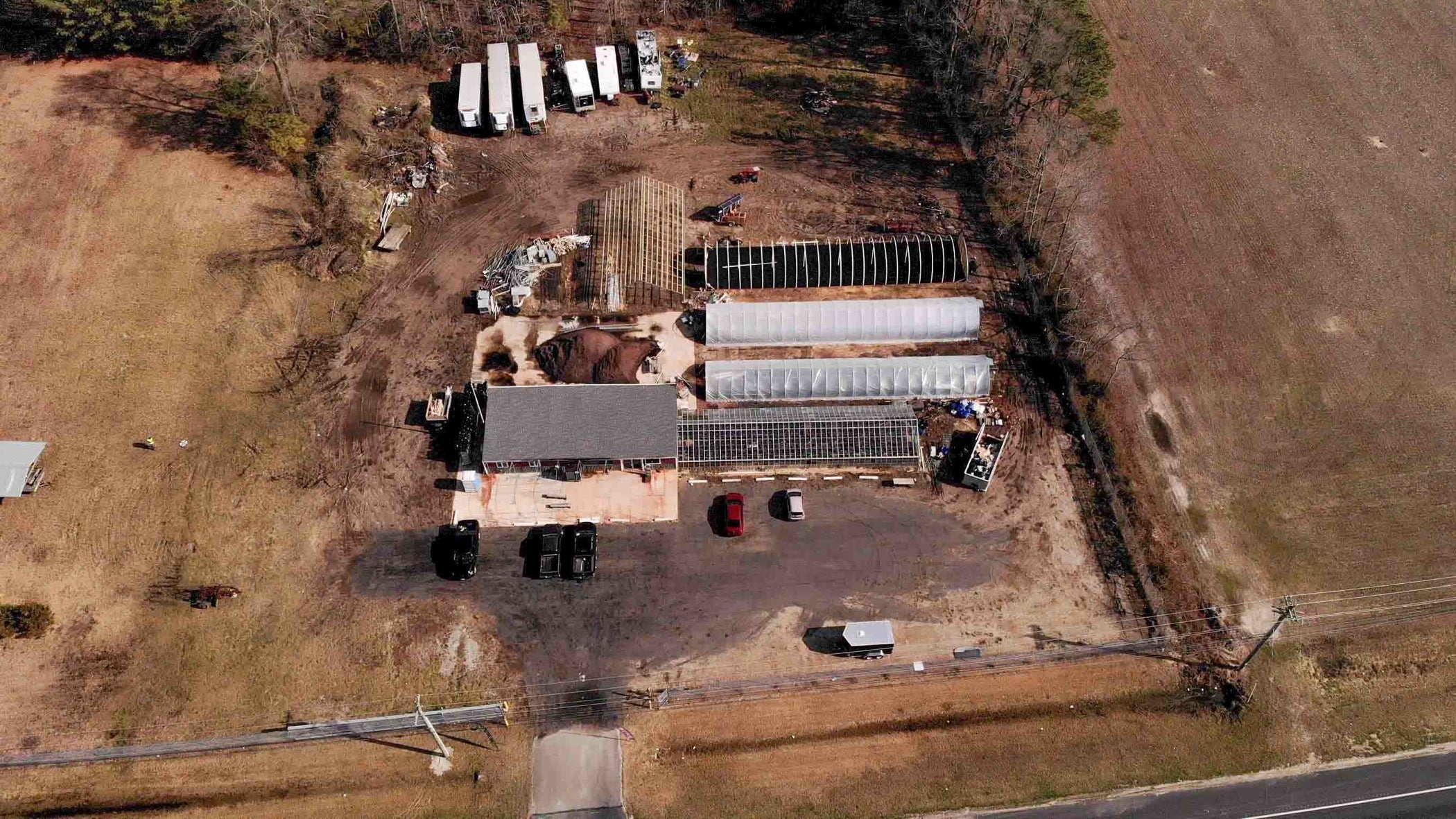
Expectations dashed, lessons learned
Messick knows firsthand how the environment affects hemp.
She and her husband and son participated in last year’s pilot program because they wanted to diversify their farms in Lincoln and Milford, where they grow green corn and soybeans.
Though the Messicks are experienced farmers, it was their first experiment with hemp, which requires almost 24/7 care — pulling weeds, controlling pests, and ensuring the plant isn’t destroyed by too much light or water.
When their crop samples tested above 0.3% THC, they had to destroy it.
“I think we were disappointed, but at the same time, we learned from our lessons. I didn’t dwell on it. We chose to grow the hemp plant, we knew we were accepting a big challenge — and that’s what happened,” Messick said. “You pull your boots up and keep going.”
Despite losing a lot of money, the Messick family is applying for a commercial grower’s license and trying again. They plan to grow the crop and sell it to a local processor. But this time, they’ll limit their efforts to 3 acres (down from 9), buy seeds from a different breeder, and adjust the location and timing of growth.
Destroying their crop was not the Messicks’ only setback — some of their hemp plants were stolen between late September and early October. Police came to their property five times and arrested nine suspects.
“It was bad, it was very scary,” Messick said. “I was like, ‘What are we going to do with this? Are we going to let this get us down? Or are we going to try again?’ And I took the mind frame of, ‘I can’t lose this investment we have in the purchase of the seed.’”
Inhof, of the state Department of Agriculture, said that if the THC limit increased to 1%, it would be much easier to achieve. During the pilot program, she said, plants that failed THC tests always remained under 1%, and were rarely over 0.5%.
There also are yes/no field kits law enforcement can use that test THC levels at 1%, she said.
“If the acceptable THC limit remains 0.3, it is going to be difficult for all growers to stay within that parameter,” Inhof said.
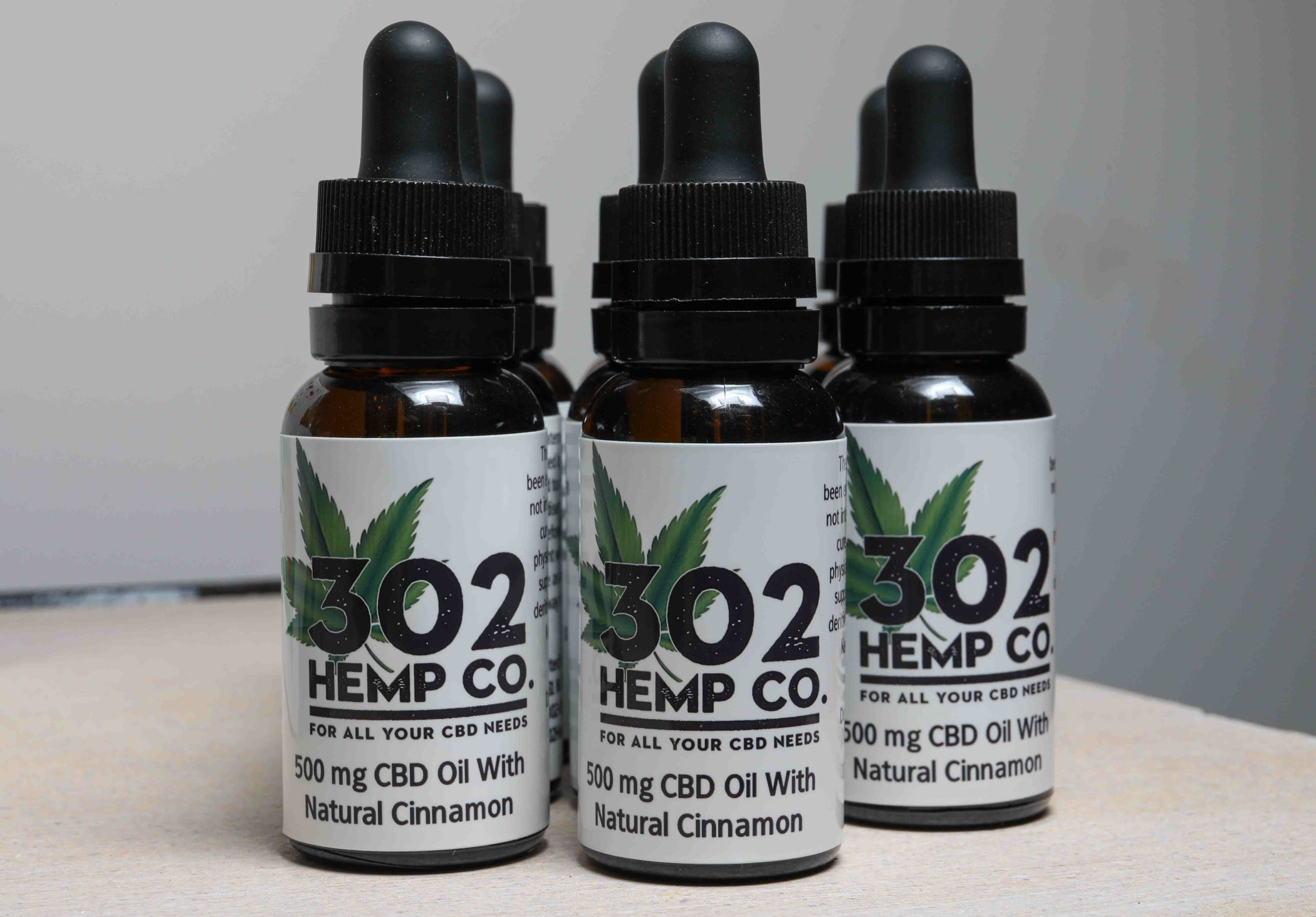
The future of hemp
Nationally, hemp growers also are concerned about a glut in the market. Some farmers cannot sell last year’s crop because there aren’t enough processors to buy it. Inhof said she expects more processors will join the industry and that will alleviate the current problem.
Still, Delaware State University officials who researched the pilot program advise growers to limit their acreage until they know the direction of the market — unless they have a contract on hand.
While the focus right now is on CBD, Inhof said eventually farmers will also grow hemp for clothing, textiles, paper, building materials and more. However, the machinery needed for that isn’t available today because hemp fibers clog up the current machines.
Inhof said once fiber hemp is produced, it will relieve the oversaturation in the CBD market.
In Georgetown, Mike Spray said that when the adequate infrastructure is available, he will grow fiber hemp alongside his CBD business. But until the THC limit is increased to 1%, he said growers like him will be hesitant to spend money to expand their businesses.
“If this had a total of 1%, I think you would see billions of dollars being infused by major companies to build the infrastructure needed for the rest of the plant. Levi’s will start making jeans, anything plastic can be made out of hemp — this is limitless,” Spray said.
“The long-term solution for the country is industrial hemp,” he said. But prospective farmers “are not going to spend that kind of money if their crop comes in hot, and then gets destroyed. You need better rules, if the right people listen.”
Not everyone has an eye on CBD businesses or industrial hemp growing, however. Jason DeYoung, a full-time biochemist, said he participated in the pilot program because he wants to start a recreational marijuana business if it becomes legal in Delaware.
A recreational marijuana bill failed in the General Assembly in 2018, but new legalization legislation awaits a vote.
DeYoung believes his pilot participation, for which he rented a farm and grew hemp for research and learning, will give him a leg up when applying for a recreational marijuana license.
“I really think marijuana has a bigger boom business, and while I do believe in CBD products because I’ve seen the results of it, [the healing ingredients are] also in marijuana,” he said.
WHYY is your source for fact-based, in-depth journalism and information. As a nonprofit organization, we rely on financial support from readers like you. Please give today.



